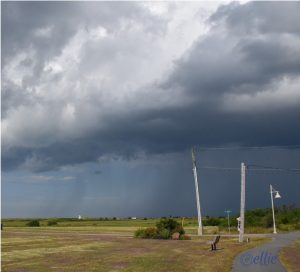Two friends sit at the kitchen table sipping coffee talking about their week ahead. Their children are happily playing nearby, until one snatches a toy from the other. One child cries while the other looks up. A mother turns to her child ‘Say you are sorry’, she says. The child complies. Considering all is forgiven, the mother turns back to her friend as she takes another sip of her coffee.
As a child can quickly say, I am sorry, when instructed to, adults can also be quick to utter those words. But what does it really mean when someone says they are sorry? Is the person truly repentant for what they have said or done, or is it a band aid solution? The person just wanting to get the relationship back on track, just the way it was No fuss, no muss, no work involved. Just say I am sorry and continue life as it always has been. Until the next time that is.
As we grow older and wiser, we are supposed to know better. I wish I could write that I am shocked how hurtful people can be to each other. But I can only say how saddened I am. Why is it that we feel the need to lash out at others, often to those closest to us? Expecting no change in the relationship. Unfortunately, many times that is exactly what happens. The pattern is so ingrained that we don’t even notice the same hurts, the same apologies. A different argument maybe, but the cycle continues.
I have experienced many arguments, and disagreements in my lifetime. Some quite easily solved by stepping back and taking a clearer look at the situation. Then there are those that I chose to ignore and pretend didn’t happen, which can fester and grow for years. Others are rather sophisticated manipulations. My ex was one of the people who became very good at that. It was so subtle it took me years to see. He found the key words that would make me relent, give in, and accept what had been said or done. If you really loved me. If this was a true marriage. It tugs at that need to please, the dream of the happily ever after we all crave. Not being one who likes confrontation, and always wanting to please, I find myself struggling when this happens. Words escape me. I get confused and distracted in the moment about what transpired. Over time subtle messages that I am at fault get recorded in my mind. I become convinced that I am the one who caused everything.
I’ve fallen into the trap of word wars. I didn’t say that, you said this, that’s not what I meant. I’ve been bullied on more than one occasion. I’ve been verbally and physically threatened repeatedly. I’ve been intimidated by the physical presence of someone towering over me in a rage. I’ve learned things. I’ve learned that this is not ok. I’ve learned I do not deserve to be treated like this. I’ve learned I do not have to accept it, and that I need to remove myself from the situation in order to protect myself. I’ve learned boundaries.
Boundaries are not welcomed. Boundaries mean that you are changing the dynamic. Boundaries mean there is a new routine. Boundaries mean the old standards won’t work. Boundaries sometimes mean we have to walk away, end the relationship. There’s no room to settle the score, resolve the issue, or hear the genuine apology we deserve.
Then the really hard part begins. We need to forgive.
Carrying any kind of dark anger towards others, or the feeling that we are not a good person in our hearts or minds, is unhealthy. Harbouring these feelings can harm all of our relationships. We need to recognize that we are all broken people, damaged over time by life circumstances. We need to recognize that the person who is hurting us has also been hurt, by us and by others in their lives. There are circumstances in their lives that have shaped who they are, things that we may never know or understand. We need to accept that we are going to butt up against each other from time to time. We need to understand that solutions are not always easy to find and it doesn’t mean instant resolutions and connection.
It is also important that we protect ourselves. Accepting an apology and saying ‘I forgive you’ does not mean that we have to go back to the way things were. It does not mean that everything is ok between you. It is not saying that what transpired is acceptable. It means we are releasing ourselves from the hurt, from the anger, from the taped messages that we are bad or wrong. It is opening our hearts to the possibility that the other person is also struggling. It is being able to move on and to grow in healthy ways.
The hard part is, that healthy new way does not always include the other person. Sometimes in order to heal we need to let them go, the relationship unresolved but without anger or malice. Forgiveness does not mean forgetting. It is important that we remember these events so that we can learn from them, protect ourselves, and not fall into the anger again. It does not mean we are happy about it. It does not mean we don’t have regrets. It means that we are looking after ourselves and striving to live an emotionally healthy life filled with love for self.
Forgiving can be the best gift you can give yourself because it can set you free.
Love,
ellie





I keep thinking I’m protecting myself by accepting the lame apology. Thanks Ellie, you gave me something to think about.
Awareness is the first step Sheila. It’s a great step. Good for you!